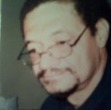Stories That Heal: Powers of Bibliotherapy
STORIES THAT HEAL…
I’ve always felt at home when visiting the public library. It’s a place where, regardless of your race, ethnicity, bank account or zip code, no one there ever made me feel as though I didn’t belong there. Ever since I heard ‘The Little Engine That Could’ during story time years ago, I felt the power of books and stories. Over the years I learned how bibliotherapy has helped me get through some very difficult events and rough periods. Whether it’s coping with past military trauma or loss of loved ones, reading books, listening to certain songs, journaling or writing my own stories, bibliotherapy has become a necessary outlet for me. The past year was very therapeutic for me, as I spent months rewriting several drafts of ‘Coreville Park a reggae novel’. Although grief and trauma have no expiration date and can linger for years, writing Coreville Park was extremely helpful to me during my ongoing healing process as I was able to channel out some of my pain and old wounds in a creative way.
Going to the library, for me, always meant that I could learn something new, which is one of the greatest lessons I’d learned from the teachings of Marcus Garvey. ‘To always be learning and bettering yourself’ is a lesson Marcus Garvey regularly spoke about. In writing Coreville Park a reggae novel I was able to rediscover some of the interesting facts and details of the Rastafarian and reggae culture. Marcus Garvey played such an important role in the foundation of the Rastafarian way of life. Long before there was reggae music there was Marcus Garvey. Here’s another interesting fact about the Rastafarian culture: True Rastas eat only Ital foods (natural foods from the earth). Rastafarians do not eat processed foods or canned food items.
Growing up in rural Spotsylvania County, Virginia, I used to dream about places like Australia, Japan and Jamaica, in which I would read about in the many books I’d checked out from the library as a kid. To see my book ‘Coreville Park a reggae novel’ sitting on the shelf at any public library is a dream come true. Whatever your dreams and goals are I hope that they are all realized, and please don’t hesitate to take full advantage of your local library to help and assist you along your journey. Coreville Park a reggae novel
I’ve always felt at home when visiting the public library. It’s a place where, regardless of your race, ethnicity, bank account or zip code, no one there ever made me feel as though I didn’t belong there. Ever since I heard ‘The Little Engine That Could’ during story time years ago, I felt the power of books and stories. Over the years I learned how bibliotherapy has helped me get through some very difficult events and rough periods. Whether it’s coping with past military trauma or loss of loved ones, reading books, listening to certain songs, journaling or writing my own stories, bibliotherapy has become a necessary outlet for me. The past year was very therapeutic for me, as I spent months rewriting several drafts of ‘Coreville Park a reggae novel’. Although grief and trauma have no expiration date and can linger for years, writing Coreville Park was extremely helpful to me during my ongoing healing process as I was able to channel out some of my pain and old wounds in a creative way.
Going to the library, for me, always meant that I could learn something new, which is one of the greatest lessons I’d learned from the teachings of Marcus Garvey. ‘To always be learning and bettering yourself’ is a lesson Marcus Garvey regularly spoke about. In writing Coreville Park a reggae novel I was able to rediscover some of the interesting facts and details of the Rastafarian and reggae culture. Marcus Garvey played such an important role in the foundation of the Rastafarian way of life. Long before there was reggae music there was Marcus Garvey. Here’s another interesting fact about the Rastafarian culture: True Rastas eat only Ital foods (natural foods from the earth). Rastafarians do not eat processed foods or canned food items.
Growing up in rural Spotsylvania County, Virginia, I used to dream about places like Australia, Japan and Jamaica, in which I would read about in the many books I’d checked out from the library as a kid. To see my book ‘Coreville Park a reggae novel’ sitting on the shelf at any public library is a dream come true. Whatever your dreams and goals are I hope that they are all realized, and please don’t hesitate to take full advantage of your local library to help and assist you along your journey. Coreville Park a reggae novel
Published on January 08, 2024 13:02
•
Tags:
bibliotherapy, coreville-park, randolph-randy-camp, randy-camp, rasta, rastafarian-culture, rcstories, reggae-book, reggae-fiction-story, reggae-novel, trauma
No comments have been added yet.
Randy C Creations RCstories
Thanks for Visiting! Randy was born on March 12, 1961 in rural Spotsylvania County, Virginia. Randy has written several TV scripts and screenplays, including TIME OUT TIME IN, THE LEGEND OF THREE TREE
Thanks for Visiting! Randy was born on March 12, 1961 in rural Spotsylvania County, Virginia. Randy has written several TV scripts and screenplays, including TIME OUT TIME IN, THE LEGEND OF THREE TREES, NEW K.A.N.S.A.S., and authored four novels, including the prize-winning WET MATCHES and '...THEN THE RAIN'. Randy has five daughters; Natasha, Melinda, Randie, Ranielle, Christina and one son Joshua. Randy's two favorite quotes are 'Don't let others define you - You define yourself!' and 'Don't be afraid to dream BIG!'
...more
- Randolph Randy Camp's profile
- 136 followers



